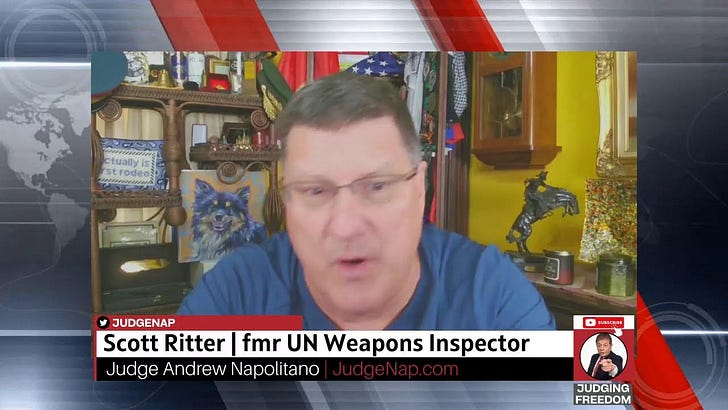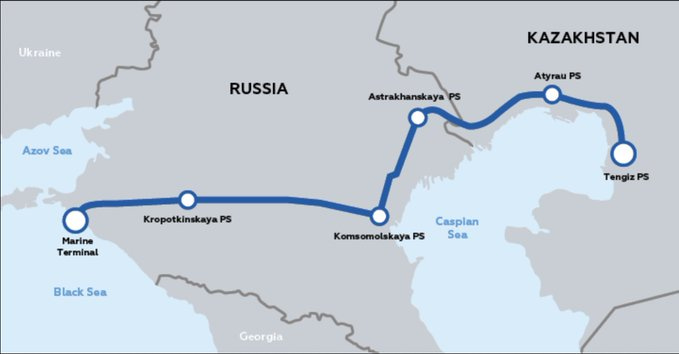I’ve been arguing for quite a while now that Trump’s plan for peace requires more than just a cessation of fighting. I’m not suggesting that an end to actual warfare is not a motivating factor for Trump. Doug Macgregor, who has dealt with Trump personally and regularly warns anyone who will listen of his fears that Trump is being lured into a global war, also regularly repeats that Trump as a person is opposed to war. My argument is simply that, if Trump’s MAGA agenda is to succeed, he must succeed above all on the home front. Foreign wars are destructive of that end, if only because the US military is ill equipped to be waging the type of global war that the Zhou regime of Anglo-Zionists left Trump with.
At the same time, Americans hate losers—Zhou was never forgiven for the way in which he left Afghanistan. Cutting and running is permissible, but it must be done with some pretense of dignity. Therefore, it follows that Trump must be seen to be gaining something tangible for the American people when he signs off on the Anglo-Zionist defeat in its proxy war on Russia. An arms deal that backs us all away from the nuclear precipice fills that bill admirably, and Trump has dropped hints about this—for those who are listening. Trump has now made all that quite explicit in his recent call for arms control and/or disarmament.
On Friday Scott Ritter wrote a lengthy article about this.
He acknowledges the difficulties but is optimistic about eventual success. Importantly, tomorrow the meetings in KSA between the Russian team (led, we now learn, by FM Sergey Lavrov) and the US team (Rubio, Waltz, Witkoff?) are set to begin. Lavrov has made it clear that he will be there to listen to what the Americans have to say, and will return to Moscow to discuss what he heard with Russia’s national security establishment. The agenda is emphatically not simply about Ukraine—it will include Middle Eastern matters as well as arms control.
Here is an excerpt of some of the difficulties Ritter sees—none of them insurmountable:
China appears to have poured cold water on Trump’s disarmament ambitions, with Guo Jiakun, a spokesman for China’s foreign ministry, declaring that the United States should take the lead in the reduction of nuclear weapons and military spending, noting that China’s nuclear arsenal was but a fraction the size of either those of US or Russia.
But rather than shy away from engaging further, Trump should call the Chinese bluff by working with Russia to extend the New Start treaty—the last remaining arms control agreement between Russia and the US—for another five-year period (the New START treaty expires in February 0f 2026). By extending New Start (implementation of which has ceased in the aftermath of the deterioration of US-Russian relations during the Biden administration), Trump would prevent a new arms race between the US and Russia, creating the kind of stability necessary to achieve his broader disarmament objectives.
Once Trump re-engages with Russia on New Start, he can begin crafting a new paradigm for the kind of global reduction/elimination of nuclear weapons he seeks. One of the problems with Trump’s trilateral approach toward global disarmament is that it ignores the role played by the remaining nuclear armed nations of the world (declared or, as in the case of Israel, undeclared), as well as nations like Iran which are believed to be on the cusp of attaining nuclear weapons capability. Any trilateral approach toward nuclear disarmament involving the US, Russia, and China that does not factor in the impact of the nuclear arsenals of India and Pakistan, North Korea and Israel, or France and Great Britain, cannot achieve its maximum potential for nuclear arms reduction because the impetus for retaining a nuclear stockpile sufficient to deter these outside threats remains.
One approach Trump could take is to use his suggested trilateral format not only as a basis for three-way reductions in nuclear arms, but also as a framework for a broader global approach toward disarmament where the “big three” nuclear powers work in concert to support regional nuclear disarmament initiatives. For instance, the United States could take the lead in linking the nuclear arsenals of France and the UK into a global nuclear disarmament agreement. Russia could take the lead regarding the nuclear arsenals of North Korea and Israel, while China could head up the India-Pakistan problem set.
Today Judge Nap gave Ritter a platform to discuss the article’s ideas. Ritter took the opportunity to expand his thoughts and to place Trump’s call for arms control within the context of what he calls “The Trump Revolution.” The entire video is worth your time, but the part about nukes doesn’t begin until after the middle of the video. I’ve begun the video a bit before the extensive video excerpts of Trump’s statements on arms control, to include Ritter’s statement regarding how important it is for Trump to shut down America’s wars—as I’ve been arguing—and because it plays directly into a conflict that could go nuclear:
Onward!
Today Larry Johnson performs a service by reminding readers of British perfidy—the Russia Hoax:
Will Donald Trump Punish the UK for its Meddling in Two US Presidential Elections?
Ok. Sorry for the lengthy article, but the substance is important. If the Brits are laboring under the fantasy that they enjoy a special relationship with the United States, it …
Also of interest, we’re seeing repeated desperate efforts by Ukraine to derail US - Russia reconciliation. Most recently:
RT @RT_com
Ukrainian drones attack US-owned pipeline
Kropotkinskaya pumping station, damaged last night, carries mostly US-drilled Kazakh oil & is operated by CPC which includes Exxon and Chevron among owners
Brent prices spiked briefly Monday
Zelensky sending message to Trump? Pure FAFO
9:32 AM · Feb 17, 2025
Russians With Attitude @RWApodcast
Last night, the Kiev regime went for what looks like an extremely desperate gambit; as usual, the tactic they chose is schizophrenic.
A swarm of Ukrainian drones hit the Kropotkinskaya oil pumping station, operated by the Caspian Pipeline Consortium (CPC). Now, you might assume that this attack fits neatly into the series of strikes the Ukrainian military executed against Russian oil and gas infrastructure earlier — but actually it's a little more interesting than that.
The pumping station is an element of an energy network that connects the oil fields of western Kazakhstan to the Russian port of Novorossiysk, from where it is exported to the world. About 90% of the oil the CPC pumped last year came from Kazakhstan. Now, Chevron, Shell and other Western companies are partners in CPC — a lot of the Kazakh oil coming through the stations and pipelines is American-owned. About 25% of CPC is owned by American companies, and, last year, they accounted for 40% of the oil that passed through the CPC system.
This goes even beyond a “false flag” attack — this is a direct and deliberate assault on American economic interests (they have been very active in the Central Asian energy sector for decades).
Bombing what is basically American energy infrastructure in a region that has been strategically important to the US for three and a half decades and will remain such even after a hypothetical full pivot to the Pacific region... Bold strategy.
Is it a threat to the Trump administration? Is it an all-too blatant attempt to somehow blame Russia for economic damage to American companies? Are they just really goddamn stupid?
Whatever their reasons, the cretins in Kiev seem determined to right a wrong and convince America to send its future military aid warhead-first.
10:46 AM · Feb 17, 2025





Great article at Simplicius the Thinker about the upcoming talks. His final line hits the nail on the head. After the Minsk betrayals, "the ‘talks’—even the upcoming ones between Trump and Putin personally—are likely only to be the very opening normalization procedures of a very long process, which will take its natural course through the remainder of the year, as the Russian army continues to plow ahead." We're living in the middle of amazing "slowly then suddenly" times.
admittedly I’m a russophile but Lavrov is very impressive. Mark, I think you’ve said yourself that the Russians take this seriously. it’s not something they give you as a political gesture